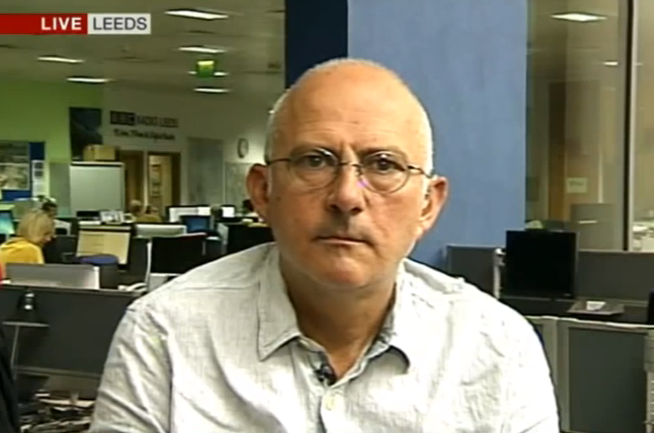Last night’s UK Press Awards stood out for deserving winners – and some undeserving losers.
Andrew Norfolk of The Times won two gongs for his extraordinary investigation into child abuse in Rotherham, which exemplified what good journalism can achieve. Norfolk ploughed away at this for years, often as the only journalist in the courtroom putting together a picture that the authorities did not want to see: Muslim men abusing white girls. His investigation triggered an inquiry which exposed a crime and some 1,300 victims.
It’s lonely work, and pretty depressing to spend months on end acquainting yourself with every detail of a story that involves the basest human behaviour. But Norfolk’s reporting established what the police could not, and what the authorities would not. It’s not often that any journalist at those awards is given standing ovation by other hacks (winners are far more likely to be heckled) but Norfolk was cheered to the rafters when he collected the gong last night. Interestingly, he thanked the newspaper’s lawyers – without whom, he said, he would not have been able to write a word.
There were many undeserving losers and yes, as a Daily Telegraph columnist I am biased but what follows about journalists from other titles. One is Chris Giles, the economics editor of the Financial Times, who so beautifully rumbled Tomas Piketty last year. The world seemed to have fallen for the Piketty’s narrative about worsening wealth inequality, taking his data as read. Thousands upon thousands of words were written dissecting his findings, world over. But it took a British journalist to do the digging and spot the flaw: Giles ran the numbers and revealed how Piketty’s conclusion was drawn from transcription errors and incorrect formulas. In some cases, he had just made it up – made his graphs by “drawing a line with no information whatsoever.” Here’s Chris Giles debunking Piketty:-
The figures – the real ones – show no tendency towards rising wealth inequality after 1970 in Europe. Here was the FT at its very best, challenging conventional wisdom and using its export resources to full effect and changing what had become a global debate. And make no mistake: Giles took a lot of heat for this as the lefties went beserk. It convinced me to stump up the (not insubstantial) cost of an FT subscription and be sure never to miss an article by Chris Giles. (I was hardly alone: the FT sales rose by a mighty 10 per cent last year)
The other nomination last night was the Daily Record’s front page  about ‘The Vow’ – a page that will enter history, and perhaps even helped make it. The newspaper took a bunch of fairly wishy-washy and reheated promises by the party leaders about what they’d do after a ‘no’ vote and forged them into ‘the vow’. It moved the political markets and helped the ‘no’ side win. Sometimes, newspapers create the best political phrases. It was The Sun, not Jim Callaghan, who said: ‘Crisis, what crisis?’ It was the News of the World, not David Cameron, who said: ‘Hug a hoodie’. And it was the Daily Record that created ‘The Vow’. That front page was journalism at its most simple and powerful, and was – for my money – the front page of the year. It’ll be remembered ten and even twenty years from now, long after other winners of this award will be forgotten.
about ‘The Vow’ – a page that will enter history, and perhaps even helped make it. The newspaper took a bunch of fairly wishy-washy and reheated promises by the party leaders about what they’d do after a ‘no’ vote and forged them into ‘the vow’. It moved the political markets and helped the ‘no’ side win. Sometimes, newspapers create the best political phrases. It was The Sun, not Jim Callaghan, who said: ‘Crisis, what crisis?’ It was the News of the World, not David Cameron, who said: ‘Hug a hoodie’. And it was the Daily Record that created ‘The Vow’. That front page was journalism at its most simple and powerful, and was – for my money – the front page of the year. It’ll be remembered ten and even twenty years from now, long after other winners of this award will be forgotten.
Anyway, all this matters because journalism has, in Britain, been in a bad place for a while. Now, things are recovering. The economics of the industry is now aligning behind great journalism: people will pay for content only if it’s significantly better than what you can find for free online. Last night’s awards were a welcome reminder that the industry, as a whole, is on the mend.







Comments